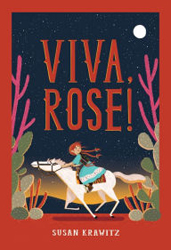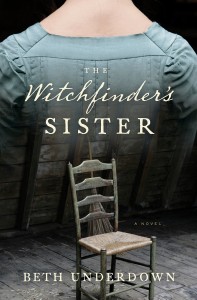The Lilith Blog 1 of 2
August 2, 2018 by admin
What the Lilith Staff is Reading Now
Welcome to another installment of this occasional recurring feature in which Lilith staffers reveal what books are on our nightstands, our e-readers and tucked in our bags for the commute. Share your own summer reads in the comments!
Kira Yates, Intern:
This summer I’ve decided to read two books at once: The Guide for the Perplexed by the Rambam himself, Rabbi Moshe ben Maimon, and The Heart is a Lonely Hunter by Carson McCullers. Though one was written in 1190 Spain and the other in 1940s Georgia, the theological treatise and the novel explore God and the actions of human kind. In his investigation of Jewish philosophy, ben Maimon seeks to prove that God does not have a body–an assertion that became a scholarly sensation across Europe. McCullers, on the other hand, tells the story of four struggling people in a small Georgia town, a reminder of what it feels like to be forgotten and in search of human connection. Published 750 years apart, these books present parallels about the human need for understanding and unity with something greater than the self.
Naomi Danis, Managing Editor:
 During the just-finished 11 months of saying kaddish for my beloved mother, I somehow couldn’t complete reading a book. Possibly because I couldn’t allow myself the escape. Or perhaps because finishing a book would entail a new loss. Sorting through the tsunami of possessions I absorbed, I’ve been enjoying two books that resurfaced: a memoir of childhood and youth (in Hebrew) HaYeled Hazeh, by Yuda Atlas, “dean” of Israeli children’s books. Also Viva, Rose! by Susan Krawitz, a middle-grade novel, set in Texas about a family of Russian Jewish immigrants during the Mexican Revolution of 1910-20. Happily, there is an overflowing pile of books beside my bed that I am longing to read.
During the just-finished 11 months of saying kaddish for my beloved mother, I somehow couldn’t complete reading a book. Possibly because I couldn’t allow myself the escape. Or perhaps because finishing a book would entail a new loss. Sorting through the tsunami of possessions I absorbed, I’ve been enjoying two books that resurfaced: a memoir of childhood and youth (in Hebrew) HaYeled Hazeh, by Yuda Atlas, “dean” of Israeli children’s books. Also Viva, Rose! by Susan Krawitz, a middle-grade novel, set in Texas about a family of Russian Jewish immigrants during the Mexican Revolution of 1910-20. Happily, there is an overflowing pile of books beside my bed that I am longing to read.
Talia Lang, Intern:
 I’ve just finished reading The Witchfinder’s Sister by Beth Underdown, which asks why Matthew Hopkins called himself the Witchfinder General during the English Civil War and killed 106 “witches” in 14 months. To answer this question, Underdown gives Hopkins a sister, Alice, who witnesses her brother’s crusade with growing horror and a sense of her own powerlessness. Alice analyzes her brother through the lens of contemporary psychology, but never diagnoses him. The reader finds Hopkins’ true motives not in Alice’s internal dialogue, but in Hopkins’ actions towards the women around him. Underdown’s novel frightens because the psychology behind Hopkins’ actions is so familiar in today’s world of #MeToo. Alice both ends and begins the novel, like Jane Eyre’s Bertha Mason, locked in the attic and called mad; but here, Underdown gives the madwoman in the attic her own voice.
I’ve just finished reading The Witchfinder’s Sister by Beth Underdown, which asks why Matthew Hopkins called himself the Witchfinder General during the English Civil War and killed 106 “witches” in 14 months. To answer this question, Underdown gives Hopkins a sister, Alice, who witnesses her brother’s crusade with growing horror and a sense of her own powerlessness. Alice analyzes her brother through the lens of contemporary psychology, but never diagnoses him. The reader finds Hopkins’ true motives not in Alice’s internal dialogue, but in Hopkins’ actions towards the women around him. Underdown’s novel frightens because the psychology behind Hopkins’ actions is so familiar in today’s world of #MeToo. Alice both ends and begins the novel, like Jane Eyre’s Bertha Mason, locked in the attic and called mad; but here, Underdown gives the madwoman in the attic her own voice.
Sarah Seltzer, Digital Editor:
An investigation into literary motherhood for Lilith has me simultaneously reading a classic of the form– Adrienne Rich’s Of Woman Born— with a new twist on it, Sheila Heti’s philosophical nonfiction novel Motherhood. The former is striking in its relevance (despite its expected datedness in parts). In particular, Rich’s honesty about her own maternal ambivalence and her descrying of the way motherhood is shoehorned into an “institution” of male control feels fresh and relatable. “Guilt is one of the most powerful forms of social control of women; none of us can be entirely immune to it,” she writes. (Hello, my life, as Grace Paley would say.)
Heti’s self-as-narrator can often be found flipping coins as an expression of her existential ambivalence. Yet beneath this diffident pose, she is as sharp as Rich: “The most womanly problem is not giving oneself enough space or time, or not being allowed it. We do not stretch out in time, languidly, but allot ourselves the smallest parcels of time in which to exist, miserly.” she writes, adding, “To be virtuously miserly towards oneself in exchange for being loved—having children gets you there fast.” It can be painful to have these brilliant women excavate the deepest discomforts in a sentence or two; but it also feels liberating to be understood.
Susan Weidman Schneider, Editor-in-Chief:
I don’t usually read batches of poetry all at once, but this week I was invited to a late-afternoon gathering for which a few women were asked to each bring 10 copies of a one-page poem, for sharing. Turned out that this assignment was a terrific treat! I was surprised to find that many of the contemporary poems I like written by women run longer than a single page! Women have a lot to say, now that we are writing about our own lives more expansively than in the epigrams of Emily Dickinson (who was the only female poet I’d read before I turned 20). In the end I chose, from the collection Insomnia by Linda Pastan (one of Lilith’s former poetry editors), the poem “River Pig”—find it and read it! And I wanted (but obeyed the rules) to bring all the poems by Alicia Ostriker (our current poetry editor) contained in her book The Imaginary Lover. (Read that too.)
Support independent, Jewish and frankly feminist writing.
Support or subscribe today!
 Please wait...
Please wait...